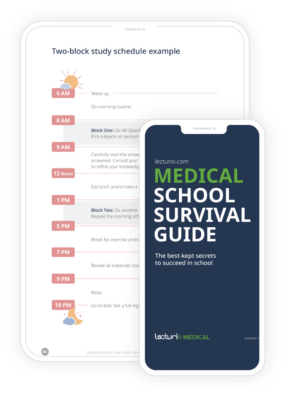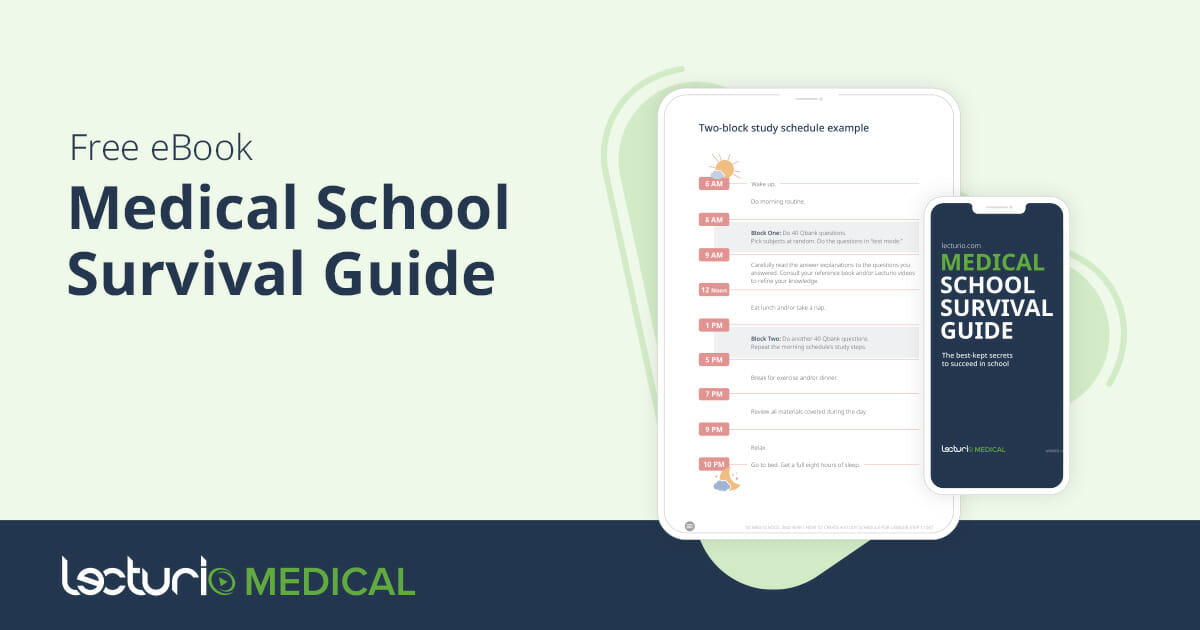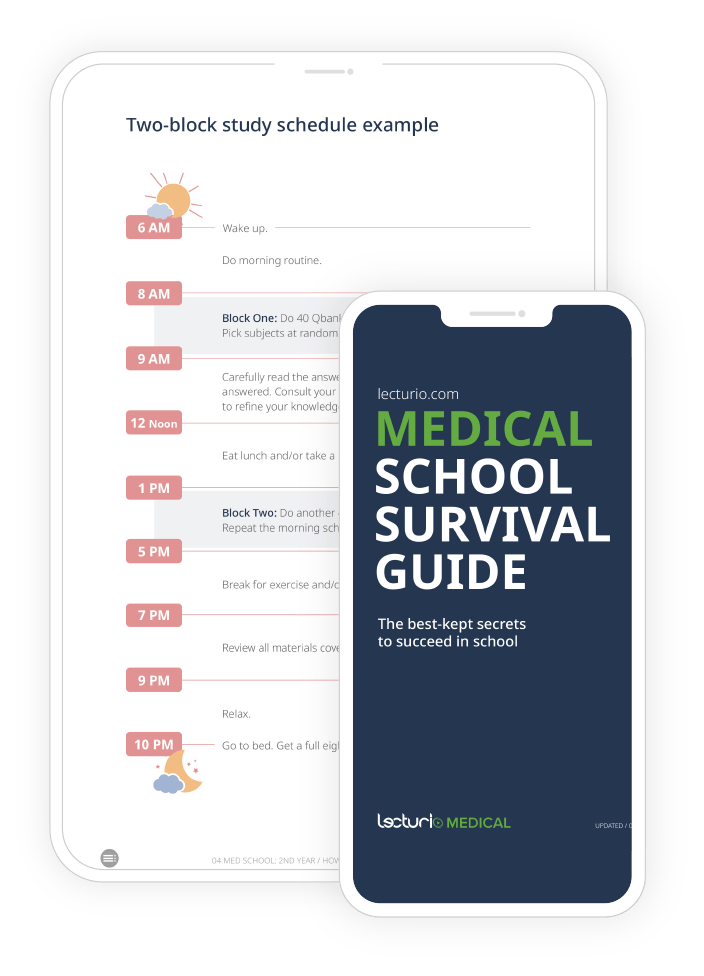For those who don’t know what a mentor is:
Mentors are advisers for people in the same career path, or they’re someone who has been trained to guide you through your chosen career.
While you can get through medicine without a mentor, having one can make a big difference. Some students even have mentors as early as their pre-medical courses. So, let’s get into what mentorship is like in medical school.
What is the Role of a Mentor?
A mentor acts as a career adviser, coach, and teacher. If your relationship with them is deep enough, sometimes they can also act as a life coach. It’s a flexible role that many people find helpful in medical school because mentors provide a holistic approach to guiding students.
My mentor has talked me through some tough times in medical school, especially the first few years. The first time I failed an exam, she was there to help me improve for the next one. We set goals together for both my academic and personal life. When the COVID-19 pandemic hit, she was still there to check up on me regularly to make sure I was coping well. To me, my mentor was my life coach, teacher, and a trusted confidant.
Tips for Picking your Medical Mentor
The mentor-mentee relationship can be as simple or involved as you need it to be. After all, we all have different goals and needs. Your mentor can be anyone who fulfills those needs and matches your vibe. Here are a few tips to help you get started:
- Know where to look for mentors. If your school doesn’t have a mentorship program, you can go out and find a mentor. It can be an alumnus from your school or a physician you have worked for. If you are active in your extracurriculars, you might find your mentor there. If you can’t find someone, AMSA has a mentorship program for students. Your country might have such a program as well.
- Set expectations from the start. Even if you started out as friends, setting boundaries as mentor and mentee is important. Boundaries also help you make the most out of the relationship. For example, if your mentor is a busy person, you will have to set dates and times you can sit down and talk.
- Ask them questions that you can’t easily find online. Ask about what made them choose their current path. Maybe they can give you advice on how to decide on what kind of doctor you want to be. Your mentor should be someone who can guide you through these important decisions.
- Be candid about what you’re going through. Mentors can help you in many aspects of your life, which is why it’s better to find someone with the same plans, beliefs, or vibe as you. Being open and honest with your mentor can lead to a deeper relationship with them, and it also lets them know what aspects to work on with you.
- Be proactive and work together. You’re not just a follower of your mentor. Mentorship is a partnership in which you both put in the work to help you figure out what you want. Make plans together. Discuss your progress with your mentor. Put effort into the plans you make. Your mentor is not there to solve your problems for you, but with you.
- Keep in contact. Aside from setting times to meet, make sure you check on each other. Remember that your mentor is also busy, and honor the time they take to help you. Get them thank you gifts and regularly show them you appreciate their efforts. My mentor made it a point to have regular video calls to check up on me. Don’t be afraid to get in touch via a variety of channels.
Why Be a Mentor?
You can sign up to become a mentor after you graduate. If you’re the kind of person who enjoys taking the time to impart your knowledge and experience to the next generation of doctors, being a mentor is for you!
It may seem like hard work, because being a mentor means that you have to make time for it and act as a role model for an aspiring doctor. However, there are various benefits to mentoring, even for the mentors themselves.
Apart from the internal reward of knowing you helped someone, mentors have found themselves more committed to their field after becoming a mentor. It can be refreshing to go back to your roots and guide someone else’s journey through some of the hardest years of their life. In a field like medicine where one easily becomes jaded, having a new perspective can ignite the fire in you and help you remember why you chose this career in the first place.
How to Become a Mentor and Tips for Mentoring Medical Students
Mentoring starts with making the choice to be there for students who need your help. The next step is to find a way to become a mentor. You can offer to be someone’s mentor as you meet them at work, or they can be friends of yours who are planning to enter medical school. If you can’t find your own mentee or you want to meet new people, there are programs online like AMSA where you can apply to be a mentor.
Of course, being a mentor isn’t easy. There are traits people look for in their mentors, and it can be hard to fill those roles.
- Inspiring. This doesn’t just mean you give your mentees a pep talk when they are down. Share your story with your mentees and explain how you persevered through it all. Most of all, let your mentee know that you believe in them.
- Honest. Medicine is not an easy journey, and you shouldn’t sugarcoat it as such. Acknowledge how hard it can be, but also let them know that there are ways to overcome their problems. Also, be honest when you don’t know the answers. It’s an opportunity to work and learn together.
- Supportive. You’ll be acting as their coach and cheerleader at the same time. However, know your limits. You can’t help your mentee with everything. Sometimes, they will need to pick themselves up on their own. At the same time, you need to be a shoulder to lean on. You’ll learn to balance both in time.
- Present. You need to keep in contact with your mentee. Sometimes, they can be so buried in work that they can’t find the time to message you. Ask them how they are. Even a short message of support can make a difference. Your time is the greatest thing you can give your mentee. They need it.
- Hands-on. Let your mentee shadow and work with you at times. If you don’t have that time, you can share some nuggets of wisdom with them about the things you’ve experienced in your own time in the hospital.
If you truly want to become a mentor, it’s not just about them passing medical school. That’s not the only goal. As their coach, in the words of Ted Lasso, it’s “…about helping them become the best versions of themselves. It isn’t always easy, but neither is growing up without someone believing in you.” Always remember that mentees are more than just medical students.
What it Means to Be a Mentee
Being a mentee is harder than it sounds. It’s keeping up a professional relationship, making plans with your mentor, and doing your part to follow through with those plans. Despite the effort it takes, you might find it easier to get through obstacles when you know you have someone there who supports you.
I used to be worried about bothering my mentor for the smallest things, thinking that I could get by on my own. However, over time, I found myself asking for more sessions with my mentor because there were times when I had trouble coping with the demands of medical school.
So, as a mentee, don’t be afraid to take the initiative and ask for help from your mentor. While medical school is a path where you must succeed on your own, your mentor can make it an easier path to walk down. Maybe at the end of all of it, you will want to pave that path for someone else, too.







